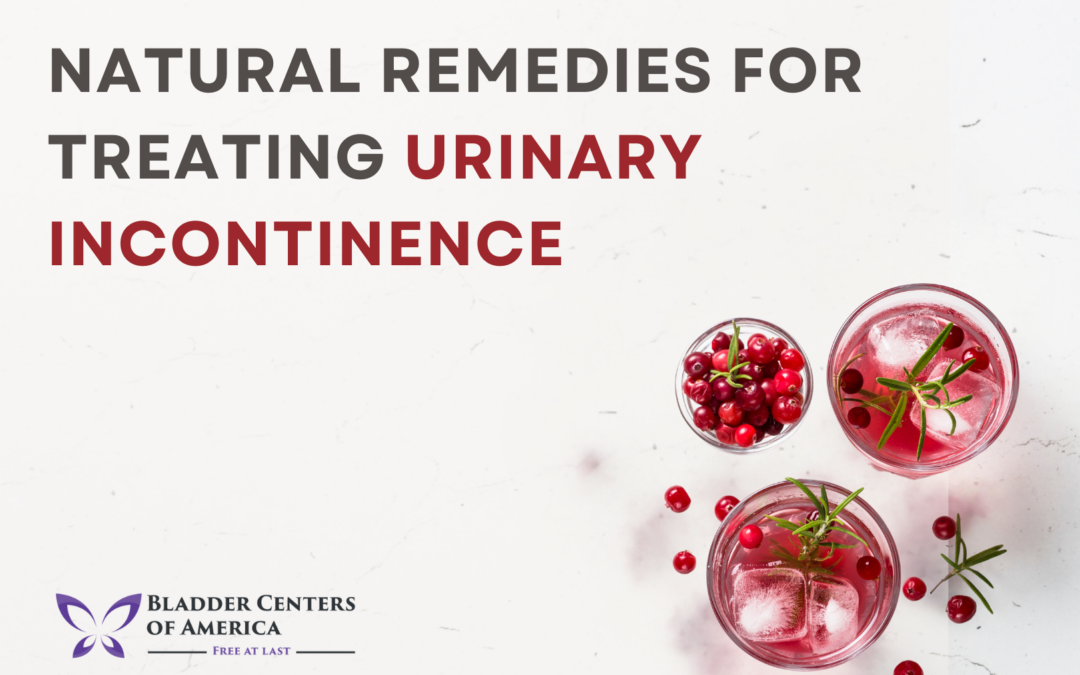Urinary incontinence is a common condition that affects many people worldwide and can be caused by a variety of reasons. Fortunately, there are natural remedies available to treat this condition, ranging from dietary changes to lifestyle adjustments.
These remedies can be effective in managing the symptoms of urinary incontinence and reducing episodes of leakage. In this article, we will discuss the various natural remedies for treating urinary incontinence and their effectiveness.
Definition of urinary incontinence and its prevalence
Urinary incontinence is the inability to control one’s bladder, resulting in the involuntary leakage of urine. It is a common condition that affects many people. Estimates suggest that it affects around 20-30 percent of adults worldwide.
The condition tends to affect women more than men, particularly post-menopausal women and those who have recently given birth.
Furthermore, incontinence can stem from different causes such as underlying medical conditions, weak pelvic floor muscles, or blocked urethra. Treatments range from lifestyle changes to medications and even surgery, depending on the severity and cause of the condition.
Overview of natural remedies for treating urinary incontinence
There are several natural remedies available for treating urinary incontinence. One of the most commonly recommended treatments is pelvic muscle exercises, also known as Kegel exercises.
These exercises involve repeatedly contracting and releasing certain muscles in the pelvic area to strengthen them, which increases the capacity of the bladder and strengthens its control over urination. Additionally, dietary changes such as limiting caffeine and alcohol intake have been suggested as a way to reduce leakage.
Dietary supplements such as cranberry juice and probiotics have also been suggested to help reduce leaks. Finally, lifestyle changes such as wearing loose clothing or avoiding triggers that can cause leakage may also be beneficial in managing symptoms of incontinence.
Risk Factors for Urinary Incontinence
Some of the primary risk factors for urinary incontinence include age, gender, weight, smoking habits, and childbirth. Women are more likely to experience this condition due to hormonal changes that occur with age and during the pregnancy process. Being overweight or obese can also be a contributing factor as extra body fat puts a strain on the bladder muscles.
Smoking is another risk factor that can lead to incontinence as it reduces bladder capacity and increases the urgency. Finally, giving birth or having a history of difficult vaginal deliveries can weaken pelvic muscles, leading to incontinence issues.
Types of Treatment: Exploring Natural Remedies
Pelvic muscle exercises/Kegel Exercises
Pelvic muscle exercises (also known as Kegel exercises) are an effective natural remedy for treating urinary incontinence. These exercises involve contracting and releasing the pelvic muscles, which help to strengthen them and reduce episodes of leakage.
Regularly practicing Kegel exercises can also improve bladder control and increase awareness of when urine is about to be released. This exercise should be done for at least 15 minutes a day, 3 times per week, to achieve results.
Dietary changes and supplements to reduce leaks, such as cranberry juice or probiotics
Certain dietary changes and supplements may help reduce episodes of urinary incontinence. Cranberry juice has been found to reduce the frequency of urinary tract infections, which can lead to incontinence.
Probiotics may also help as they increase healthy bacteria in the gut, helping to improve bowel control and reduce episodes of leakage.
Additionally, avoiding caffeine, carbonated beverages, and artificial sweeteners can be beneficial for people with incontinence as these substances can irritate the bladder wall and make it harder to control urination.
Alternatives to Natural Remedies
There are medical alternatives to natural remedies available when it comes to managing incontinence.
Medications such as anticholinergics can be prescribed to help reduce episodes of leakage. In some cases, pads may also be necessary to prevent accidents or absorb urine between bathroom trips.
Pads come in a variety of shapes and sizes and are available at most drug stores or online. While medications and pads can help manage symptoms, it is important to remember that these should not replace natural remedies or lifestyle changes for treating urinary incontinence.
The treatments available for urinary incontinence vary from person to person, but natural remedies, dietary changes, and supplements can all be used in combination with medical interventions such as pad use or medications to help manage symptoms.
While research is ongoing into the development of new and improved treatments for this condition, it is important to remember that lifestyle modifications are key to managing urinary incontinence long-term. With a few small changes and support from medical professionals, people affected by urinary incontinence can live their lives without embarrassment or discomfort.

